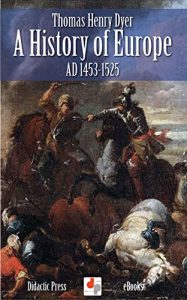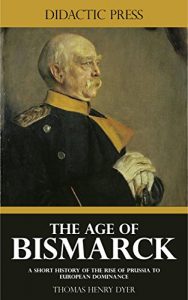THE greater part of Europe was first united by the conquests of the Romans, who imparted to it the germs of that characteristic civilization which distinguishes it from the other quarters of the globe, and which the Romans themselves had for the most part derived from the Greeks. They also transmitted to a great portion of Europe their language and their laws. Latin was long the common language of the learned in Europe, when it subsisted, as a spoken tongue, only in the corruptions of the Italian, French, Spanish, and other dialects; and Roman laws still form the basis of the codes of several European countries.
Before the close of the fifth century of our era, the Roman Empire of the West had fallen before the arms of the northern Barbarians; and thought shadow of Rome’s ancient power and name still survived at Constantinople, Europe had lost its former political unity, and was become again divided into a number of separate States. These were never again united under one dominion, and after experiencing among themselves a variety of political changes during the thousand years which elapsed from the fall of Rome till about the middle of the fifteenth century, a period commonly called the Middle Ages, had at that epoch for the most part formed themselves into those great and powerful nations which constitute modern Europe. The last great event in this process of transformation was the capture of Constantinople by the Turks in 1453, by which the small remains of the Roman Empire of the East were annihilated, and a new Power was introduced into the European system...
Before the close of the fifth century of our era, the Roman Empire of the West had fallen before the arms of the northern Barbarians; and thought shadow of Rome’s ancient power and name still survived at Constantinople, Europe had lost its former political unity, and was become again divided into a number of separate States. These were never again united under one dominion, and after experiencing among themselves a variety of political changes during the thousand years which elapsed from the fall of Rome till about the middle of the fifteenth century, a period commonly called the Middle Ages, had at that epoch for the most part formed themselves into those great and powerful nations which constitute modern Europe. The last great event in this process of transformation was the capture of Constantinople by the Turks in 1453, by which the small remains of the Roman Empire of the East were annihilated, and a new Power was introduced into the European system...










